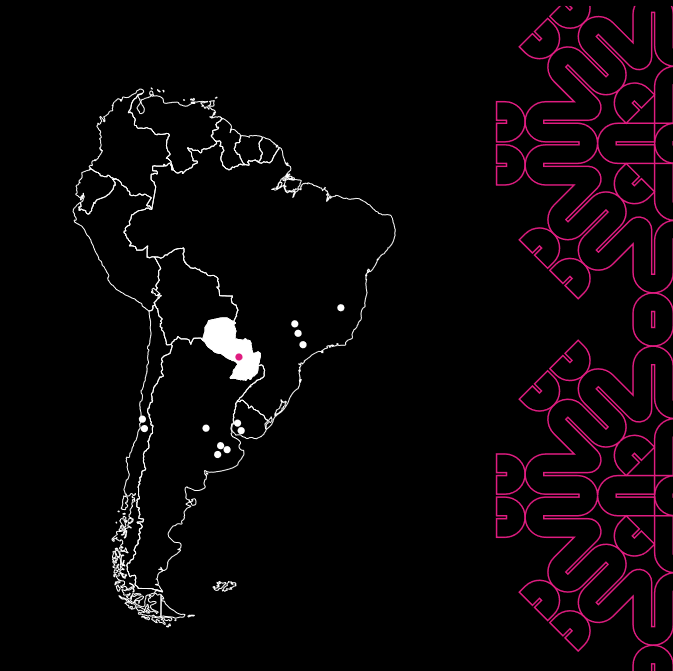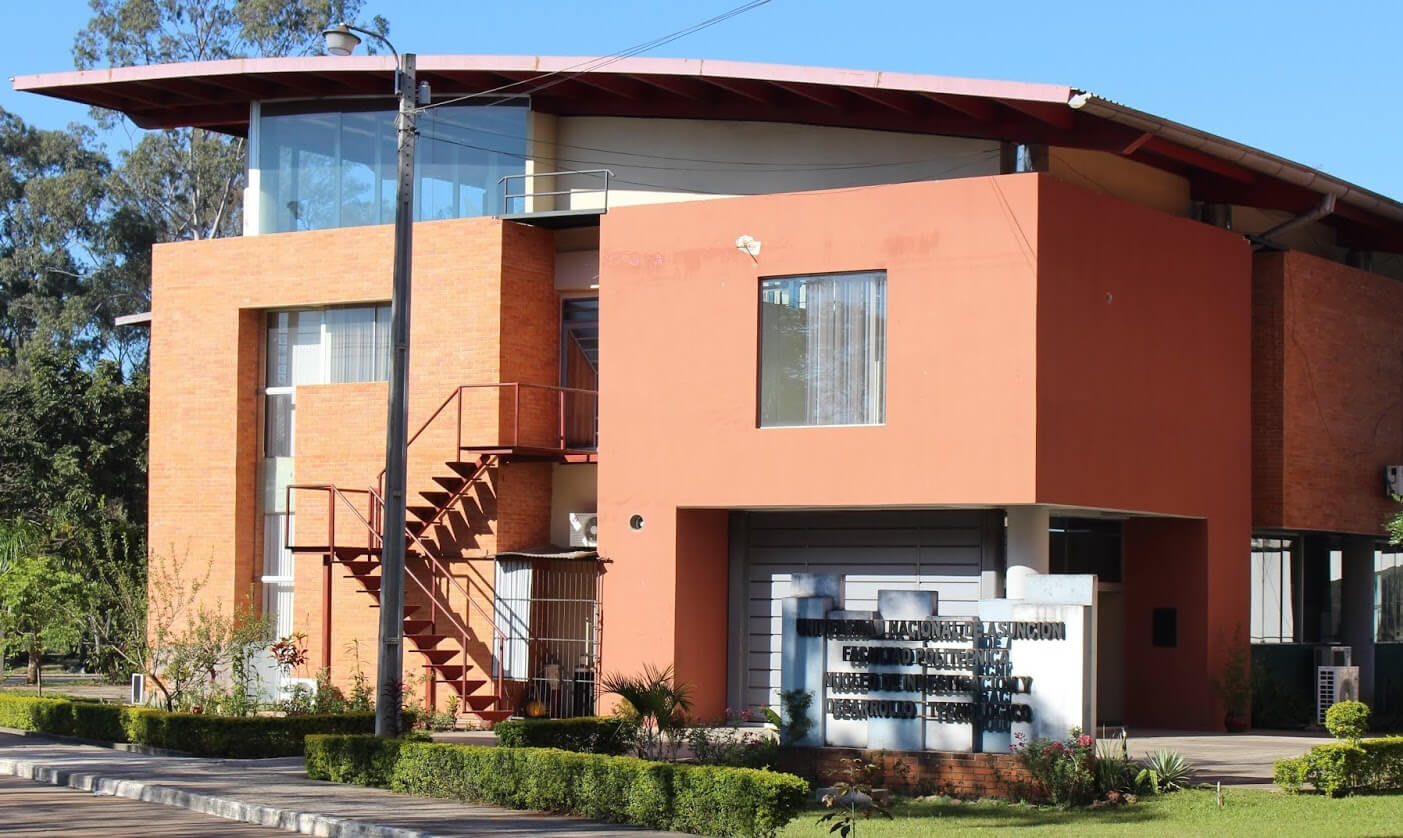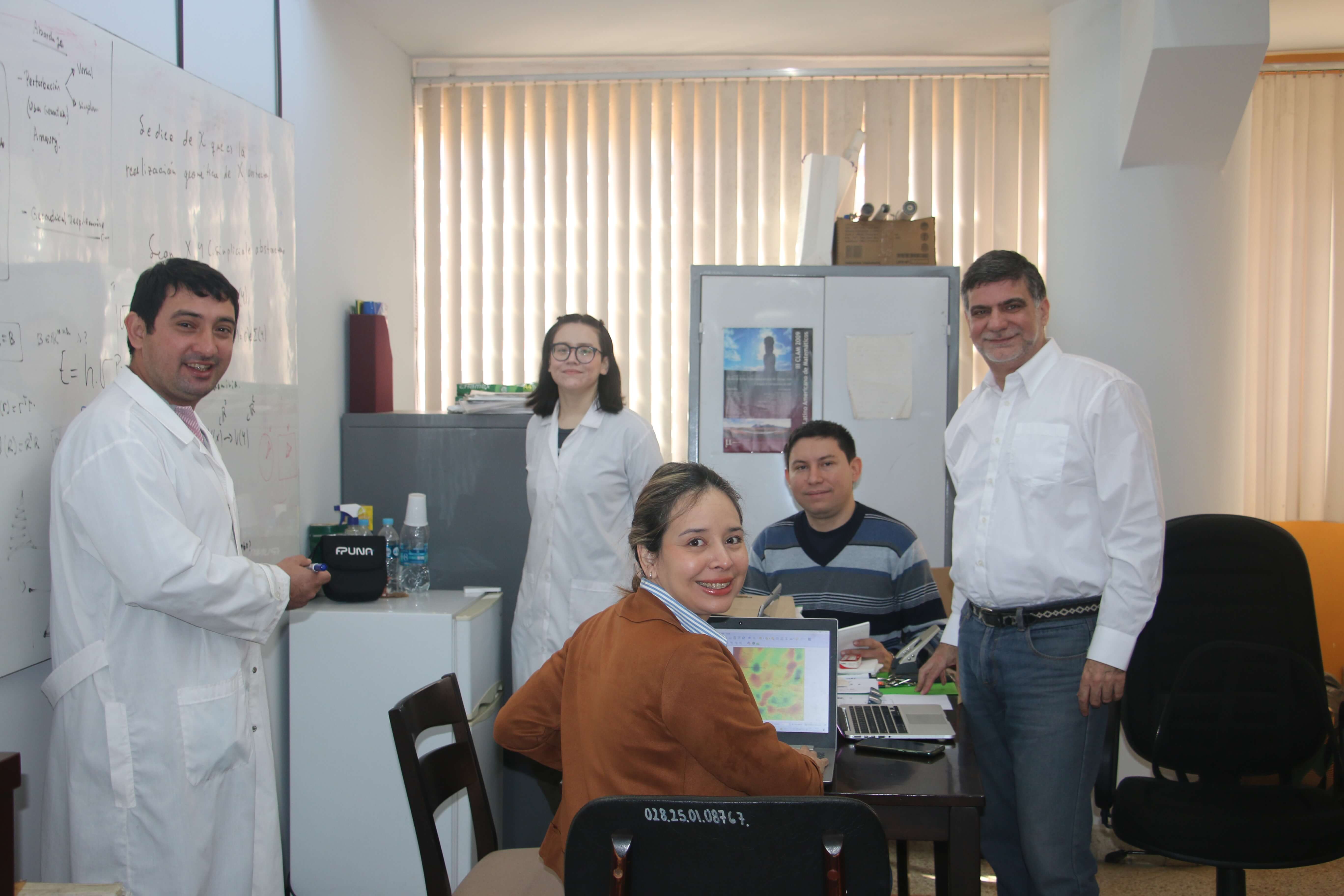

Research center
The Technological Research and Development Nucleus (NIDTEC) of the Polytechnic School (FPUNA) of the National University of Asuncion (UNA) is a research unit born in 2011. It brings three laboratories, eight research groups, and three graduate programs (Master’s and Doctorate in Sciences of Computing and the master’s degree in Information and Communication Technologies).
NIDTEC has postdoctoral programs and projects that attract foreign researchers and Paraguayan researchers who are currently abroad and wish to join a research institution in Paraguay.
The NIDTEC research groups are made up of teachers and researchers from the FP-UNA, from other schools of the National University of Asunción, from public and private universities in the country, and researchers from institutions outside the country.
The main mission of NIDTEC is to develop scientific and technological research, generate and promote science in its line of interest, and contribute to national and international society with innovative solutions to current problems.

In addition, NIDTEC performs specialized services in its areas of activity such as High-Performance Computing, Materials Science, Bioinformatics, Data Science, Computer Security, Digital Image Processing, Scientific Computing, Artificial Intelligence, and Computing Quantum, among others, due to their nature are difficult to find at the local and regional level.
NIDTEC is physically located on the campus of the National University of Asunción and is immersed in the Open Science modality. For more information on the infrastructure, laboratories, services, and researchers, you can consult the page nidtec.pol.una.py

Research lines
The research groups that are part of NIDTEC are:
Algorithm and Optimization
Bioinformatics
Biomaterials and Materials
Scientific Computing and Applied Mathematics
Operations and Artificial Intelligence
Digital Image Processing
Information Technology
Computing Theory
Instrumentation
- Scientific Computing Cluster
- Scanning Electron Microscope (SEM)
- Atomic Absorption Spectrometer
- Optical Emission Spectrophotometer
- Refrigerated High-Speed Microcentrifuge
- Refrigerated Benchtop Centrifuge
- Núcleo de Investigación y Desarrollo Tecnológico Facultad PolitécnicaU.N.A. Campus Universitario, San Lorenzo CC 2111
- +595215887000
- Christian Schaerer: chris.schaerer@gmail.com
- https://nidtec.pol.una.py
Five days of intense work, hands-on learning and scientific collaboration at @CNPEM 🇧🇷
Researchers from Latin America and Europe came together to explore the intersection between drug discovery and structural biology, through theoretical sessions and practical training.


